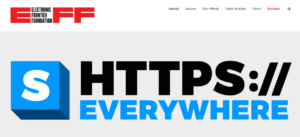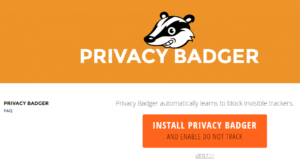Mark has been a meticulous person all his life. From high school, he has been the kind of dude that get things done — and gets it done appropriately.
One thing that makes Mark stands out is his unpredictability — it’s almost impossible to predict his next action.
It’s 5 am, Mark is up, and he wants to do a couple of researches for his project.
The thing is; his best buddy, John who he shares a room with him, always keep track of him.
For some unclear reasons, Mark wants to keep his online activities to himself — and to do that; he usually uses private tabs to access the internet.
It’s a pretty good strategy. At least, his best friend, who can quickly gain access to his smartphone and computer, can’t track him.
But is Mark truly secured online?
Don’t get it wrong; he has succeeded in protecting himself from his friend. But John, by definition, is a lesser enemy.
Mark, while protected from his lesser enemy, is still vulnerable to attacks and prying eyes from third party agencies.
After all, private tabs do one thing — prevents your local smartphone and computer from storing your browsing history.
That’s all! Nothing more, nothing less.
Over the years, there have been lots of regulations popping out everywhere. The government is in the business of monitoring your activities online.
If you’ve not been living under rocks for the last two decades, then you’ve probably heard of the various data regulations — most notably the data retention policies.
The truth is quite simple — there’s no security online. If you believe that accessing the internet from private tabs keeps you secured online, then you’re either naive or don’t understand the concept of internet security.
With data retention policies comes Metadata. And most folks don’t understand how Metadata relates to their online privacy.
Metadata — What is it?
Traditionally, letters are composed of two parts — the content of the letter and the address.
The letter content is the part which gets read, while the address (which may be composed of the subject line) determines where the letter gets sent.
Digital files are designed with a similar structure. Emails and texts are comprised of the address and the content.
Messages and files don’t just pop out of the sky; there’s a part of the file which ensures that the message is delivered to the right party — that part is called the Metadata.
For digital messages, the part is usually the subject line and email address. Phone number and Twitter hashtags are also Metadata.
Still don’t get the point?
Well, here is another to see it.
If you shout out to your buddy across the room, the name shouting is the Metadata, while everything that’s being said is the content.
Third-party agents and the government sees the Metadata differently from the message content.
Yes, there’s a thin line between the Metadata and the content, but this difference can cause lots of issues with the government.
Metadata is the data about data.
The data describes itself and the object it belongs to.
What’s more, Metadata is used in a variety of ways like…
Email
All emails are designed with the recipient’s name, the sender’s name, and email address. Also, it contains the IP address, time sent, and other message-specific information like the email’s subject line.
The Metadata is the invincible mechanisms that let the email get sent to the right place. Without it, your emails won’t get organized and displayed correctly.
Social Networking
When you use Facebook or Twitter to sign in to third-party apps, you’re required to provide access to your basic information like friend list.
The main essence of providing access to your basic information is to enable these third-party apps to gain access to the Metadata stored on your social media accounts.
The Metadata are usually used to create customized Ads. This way, they get to send Ads that are relevant to you.
Phone
Have you wondered how your calls your logged? Or how your phone bills are prepared?
Metadata provides the log call data for Telecommunication companies. The data is used to prepare billing information for the customers.
Metadata include the call duration, caller ‘s number, and time.
Web pages
Without Metadata, the internet would be pretty much unsearchable. Metadata of web pages include the page title, page description, publish date, keywords, and lots of other information.
Ideally, metadata are used by search engine platforms to make the web searchable for web users.
Digital media libraries
Metadata is the secret ingredient that makes your iTunes and home media server work. It keeps your movies and music organized, and it’s what makes your playlists to be nicely displayed.
For mp3 and other media players, the Metadata includes song title, artist’s name, release date, album name, and lots of additional information.
Metadata is a bunch of vital things, but it’s not the data itself.
For instance, when you open a Microsoft Word document, the creation date and author is not the entirety of the file. These pieces of data is just a subset of the whole document.
Therefore, it’s quite safe to display the information of the Metadata to the public — after all, it does not showcase everything, just a glimpse of the data to help the visitor get an idea of what the document is about.
Metadata can be likened to the card file of a library. The card file provides relevant information about the book, but it’s not the book itself.
You don’t get to know about the content of the book by just reading the card file, but the card file helps you understand much more about the book.
Metadata and Your Online Privacy
Metadata is a vital piece of your online presence.
The Metadata contained in your phone calls, social networks, email, and web browser carries lots of your personal information. And here’s the sucker…
Your Metadata is transmitted all over the internet, and other networks get to access it.
That’s a pretty bad situation for folks who are aiming to protect their online privacy.
With your Metadata out there in public, third-party agencies can access it. Some of these third-party agencies may include…
Government agencies
Folks in the NSA monitor the web activities of the public. And if you think that it’s a good thing, ask these guys.
Staying anonymous online doesn’t help. If you remain anonymous online, then the NSA would come knocking on your door.
Hackers
The twenty-first century online fraudsters are in the business of data theft. They get to access your unsecured data, steal from you, and use it for malicious purposes.
Online Marketers
Facebook and lots of other social media platforms stores massive personal Metadata of their users. Since they generate a significant percentage of their revenue through Ads, they get to convert these metadata into some cash.
Protect Your Metadata and Stay Secure Online
The first step towards online security and metadata protection is to know the data retention policy in your country.
Every country has laws guiding digital privacy. To get a full grasp of the various policies, you’ve got to consult a legal practitioner or navigate through the websites of government organizations.
Other reliable ways of protecting your Metadata include…
- Use VPN Services
- IPBurger encrypts your data with 256-bit AES encryption. Your internet privacy is in good hands, and you get to access the web without the fear of prying eyes.
- IPBurger maintains internet neutrality. Traffic is redirected via dozens of their server spread across the globe.
- IPBurger changes your IP address, which helps to protect your identity online.
- The VPN servers are optimized for unlimited bandwidth, no throttling, and fast connection.
- Use Tor
- Use HTTPs Everywhere
- Eliminate Social Media Tracking






